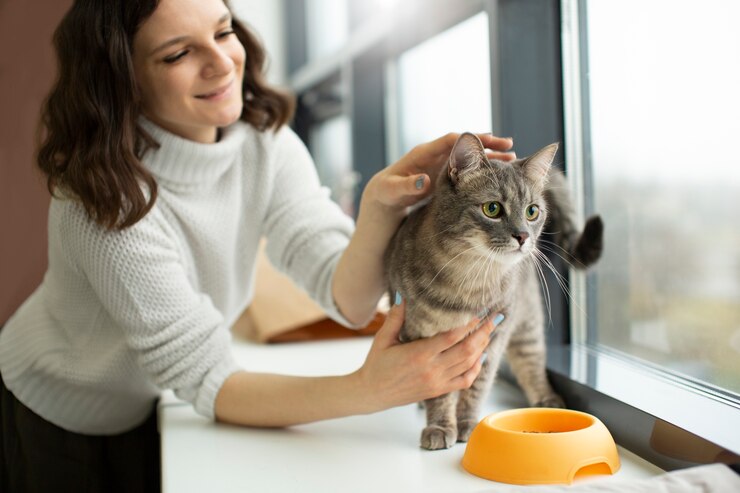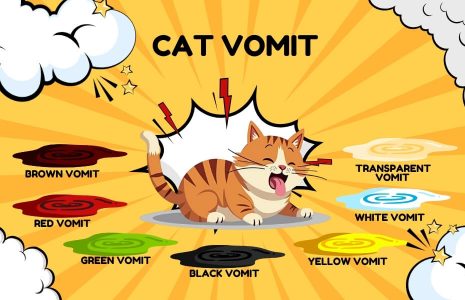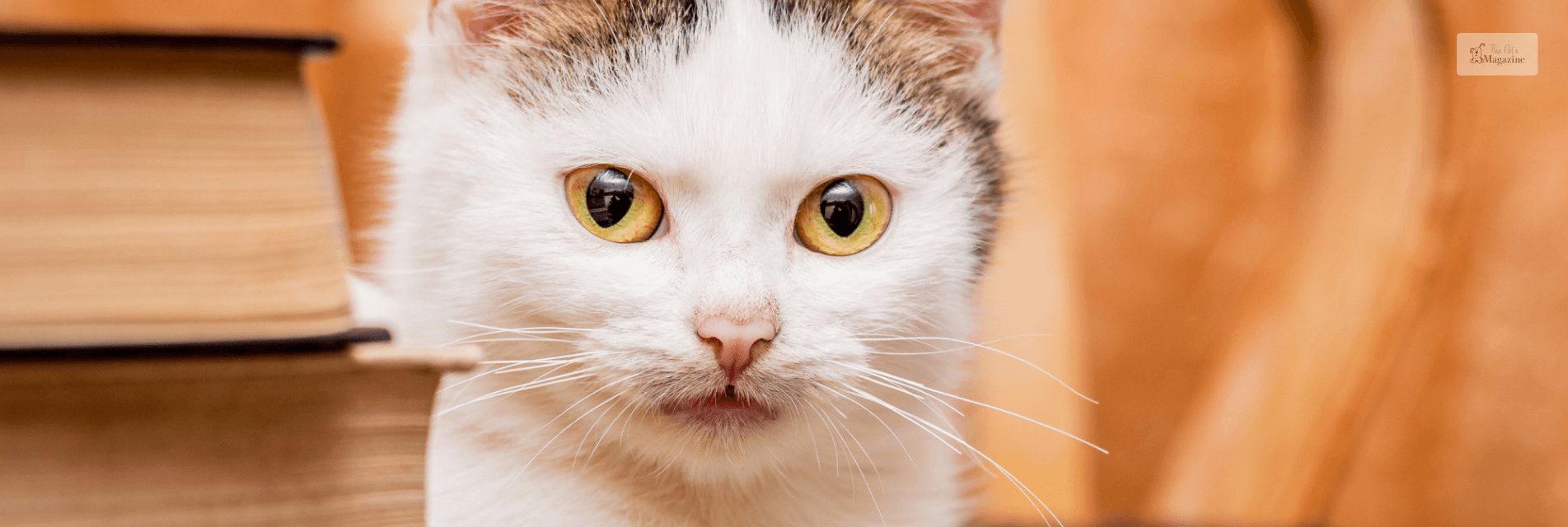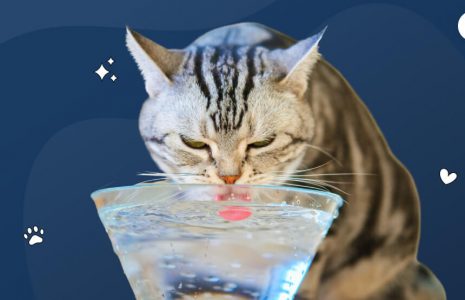Preventing Diarrhea: Tips For A Healthier Cat


So your furry feline companion has been having some tummy troubles lately, huh?
Seeing your cat suffering from diarrhea is no fun as a pet owner. It is messy to clean up, but diarrhea can lead to dehydration and other health issues if left untreated.
The good news is there are several things you can do to help prevent diarrhea in cats and keep your kitty happy and healthy. By making a few simple diet and lifestyle changes, you can reduce the chances of diarrhea and give your cat the best opportunity to thrive. Read for helpful tips to keep your cat’s digestive system in tip-top shape.
Diet Modifications to Prevent Diarrhea in Cats
To keep your cat diarrhea-free, you’ll first want to examine their diet closely. Commercial cat food high in grains like corn and wheat or artificial additives can trigger digestive upset and loose stools in some kitties.
Try switching your cat to a high-quality, natural cat food made with real, whole ingredients like meat, fish, or poultry as the first ingredient. Limited ingredient diets (LIDs) or hypoallergenic recipes are good options if your cat has a sensitive stomach. You should also avoid giving your cat table scraps, which can disrupt their digestive system.
Feeding your cat multiple small meals throughout the day instead of one big meal can also help. It prevents their stomach from being overloaded, which can lead to diarrhea. For most cats, 3-4 evenly spaced feedings are ideal.
Be sure to access fresh, clean water to hydrate your cat constantly. Lack of water can contribute to dehydration and worsen diarrhea.
If your cat’s stools don’t align with diet changes, you may need to temporarily switch them to a bland, easy-to-digest diet like boiled chicken, rice, and canned pumpkin. The fiber in pumpkin helps soothe an upset stomach. Feeding this diet for a few days before transitioning back to regular cat food would be best.
With the proper diet and feeding schedule, you can get your cat’s digestive system back on track and reduce the risk of diarrhea. But if the diarrhea is frequent or severe, or your cat shows other symptoms, consult your vet to address any potential medical issues.
Litter Box Hygiene Tips to Avoid Diarrhea
To keep your cat’s litter box in tip-top shape and avoid diarrhea, follow these tips:
Clean the box daily. Scoop solid waste daily and change the litter every week or two. Cats prefer a clean area; dirty, smelly litter can upset their stomach.
Choose a litter that is low-dust, unscented, and non-clumping. Both dust and strong smells can irritate a cat’s stomach, and clumping litter can be mistaken for food if eaten, leading to blockages.
Place the litter box in a low-traffic area away from food and water. Cats like privacy, and a stressful location or one too close to food can lead to upset stomach and diarrhea.
For kittens or long-haired cats, you may need to trim the area around the anus to avoid feces sticking to fur, which the cat then ingests, grooming itself. Keeping the area clean will reduce stomach upset.
See your vet if diarrhea persists for more than a few days. It could indicate a parasite, infection, or other issue and requires diagnosis and treatment. Your vet can determine the cause and recommend changes to get your cat’s stool back to normal.
Keeping your cat’s litter box clean and choosing the suitable litter, location, and tools for the situation will help you avoid diarrhea and keep your feline friend healthy and happy. Be attentive to your cat’s needs and habits, and don’t hesitate to call the vet if something seems off. With the proper care and prevention, diarrhea doesn’t stand a chance!
When to See the Vet for Cat Diarrhea Issues

When cat diarrhea persists for more than a few days, it’s time to have your vet examine them. Long-lasting diarrhea, the kind that just won’t quit, can mess with your body. It can make you super dehydrated and throw off your electrolytes, which are those important electrically charged things in your body that keep things running smoothly. Plus, it might be a red flag, a signal from your body that something deeper is going on, and it’s time to get it checked out by a doctor. So, don’t ignore the persistent runs – they might tell you something important!
Blood in the Stool
Schedule an appointment immediately if you notice blood in your cat’s stool or vomit. It can indicate digestive tract inflammation, intestinal parasites like hookworms or whipworms, or other issues requiring diagnosis and treatment.
Lethargy or Dehydration
In addition to frequent bowel movements containing loose, watery stools, watch for signs your cat may be dehydrated or not feeling well, such as:
- Lethargy or weakness
- Loss of appetite
- Dry gums
- Sunken eyes
If you observe any of these symptoms in your cat, they must see the vet promptly for an exam and IV fluids if necessary to avoid life-threatening dehydration.
No Improvement
If your cat’s diarrhea lasts longer than 2-3 days and home treatments like a bland diet, probiotics, or pumpkin puree are not helping improve their stool, have your vet examine them. An underlying condition like inflammatory bowel disease, pancreatitis, hyperthyroidism, or other issues may need diagnosis and prescription medication to resolve. The vet can check for intestinal parasites, bacterial overgrowth, or other causes during the exam by testing a stool sample.
Bottom line: while minor diarrhea may clear up on its own or with simple home treatments, if your cat shows severe or persistent diarrhea, blood in the stool, dehydration, or lethargy, call your vet immediately. It’s always better to be safe, as diarrhea can become life-threatening without proper treatment. Your vet can examine your cat, run any necessary tests to determine the cause of their diarrhea, and get them started on the appropriate treatment so your feline companion is back to feeling their best again.
Conclusion
So, there are a few tips to help keep your feline friend diarrhea-free and happy. By feeding your cat a healthy, high-quality diet, keeping their water bowl filled, limiting treats, and being vigilant about parasites, you’ll be well on your way to preventing loose stools and upset tummies.
Keeping a close eye on your cat and taking them to the vet if anything seems off is also vital. While diarrhea can sometimes be a minor upset, it’s always best to err on caution. Following these best practices will help ensure your cat lives a long, healthy, and diarrhea-free as your faithful furry companion.
Read Also:









Leave A Comment